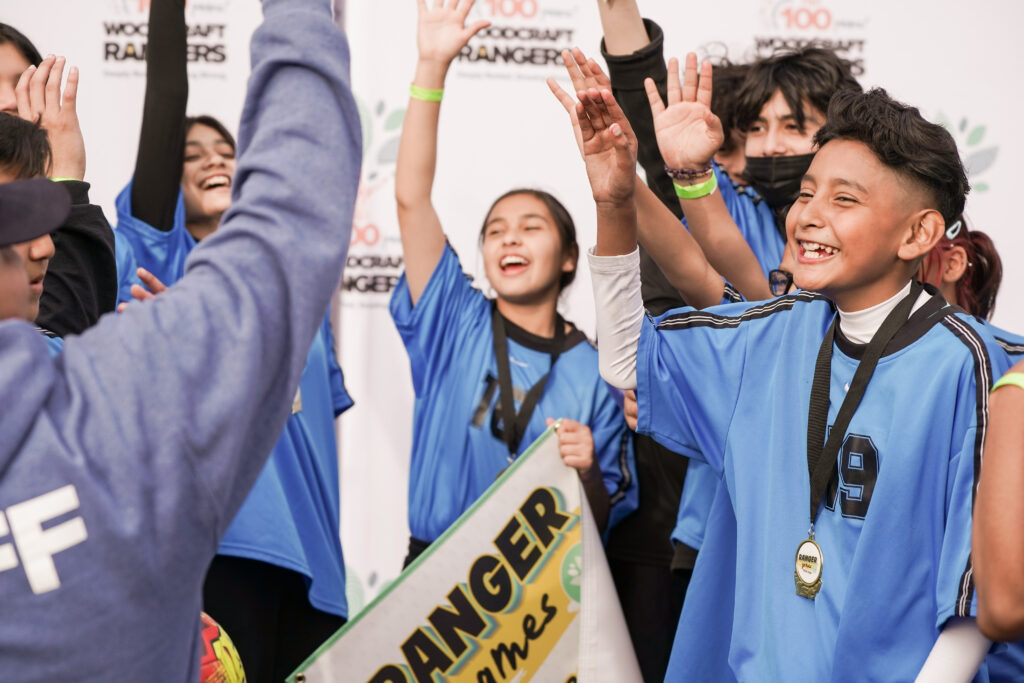Social-emotional learning skills (SEL) are crucial for holistic youth development. These skills allow kids to regulate their emotions and interact positively with others and are key indicators for future adult physical health, mental health, and even employment rates.
Studies show that SEL programs can improve academic performance, reduce behavioral issues, and increase overall well-being. SEL can also help students develop empathy, problem-solving skills, and self-awareness.
Evaluation data was conducted annually by Woodcraft Rangers, a provider of expanded learning in Southern California that focuses on developing its students’ SEL skills, and these skills were measured in students enrolled in its programs. Findings from data collection through surveys suggested an improvement in SEL skills after participating in afterschool and outdoor education programs with the agency.
Further insight revealed that although the success rate for elementary school students between the 2022/2023 and the 2023/2024 school year remained at similar levels, at 56% and 52%, respectively, it rose from 49% to 62% among middle school and high school students.
The data was derived from representative samples of the pre-and post-family survey, student census, admin survey, and site family focus groups. However, there were regional differences. Overall, advanced rates for older and younger youth improved by about 1% from February through May.
Woodcraft Rangers measures SEL indicators as a provider of expanded learning because of the importance of SEL in defining success. Sampled data collected can determine whether a child maintains and/or improves their previous score from the pre-measurement, while advanced would be defined as children scoring above the “emerging” threshold for SEL skills. In addition to the SEL data, Woodcraft surveys and analyzes data as required for Continuous Quality Improvement (CQI).
Woodcraft Rangers uses this data to continuously improve its programs to support the holistic development of every child in mind, body, spirit, and sense of service. Organization staff use the data to facilitate training such as the agency’s Behavior Engagement Model, learning and development, site coordinator and club leader training, and revise recommendations based on the region where the training is taking place to improve SEL skills that need greater attention. These programs include before and after school, summer and school breaks, specialty enrichment, early learning (TK/K), inclusion, outdoor education experiences, recess and residencies, and ELO-P programs.
These programs align with CASEL’s five components of social-emotional learning. Woodcraft Rangers assesses and shares findings by tracking the progress of its programs, student success, and parent and participant satisfaction. This is one of many ways the agency continues to improve, reflect, and retool, if necessary, its programs run by a workforce of more than 1,000 employees currently serving over 25,000 youth in partnership with over 130 schools in districts and charter schools across LA County and community members’ goals in mind. Ultimately, the agency aims to help each participant acquire the tools and skills they will need to excel in life.

